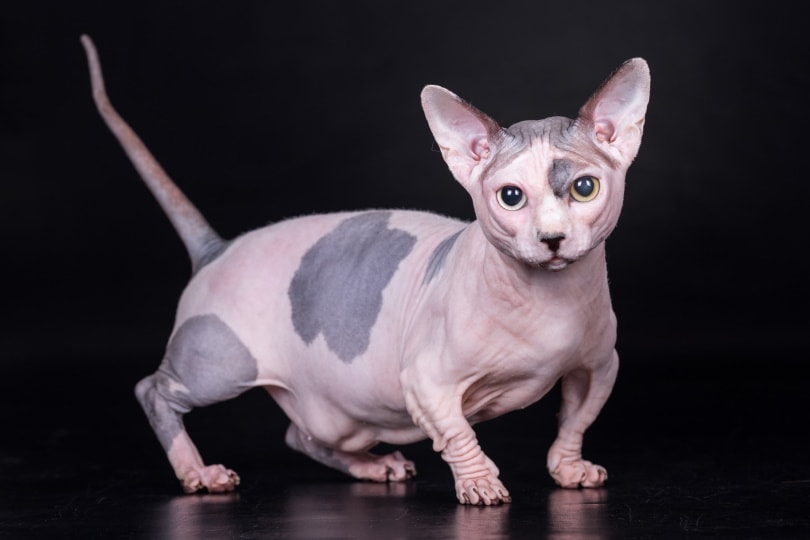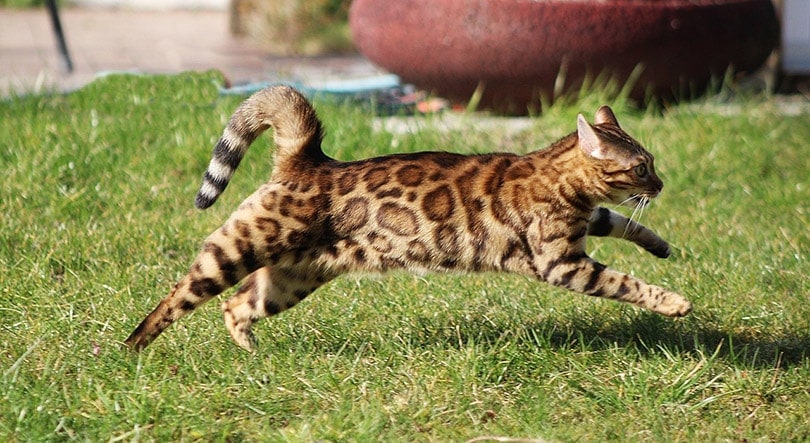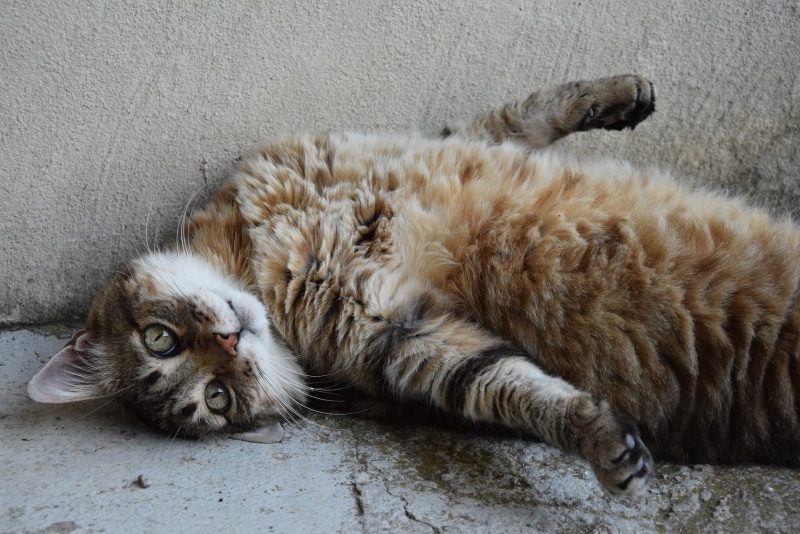Can Cats Eat Cornbread? Vet-Reviewed Nutritional Info & Safety

Updated on
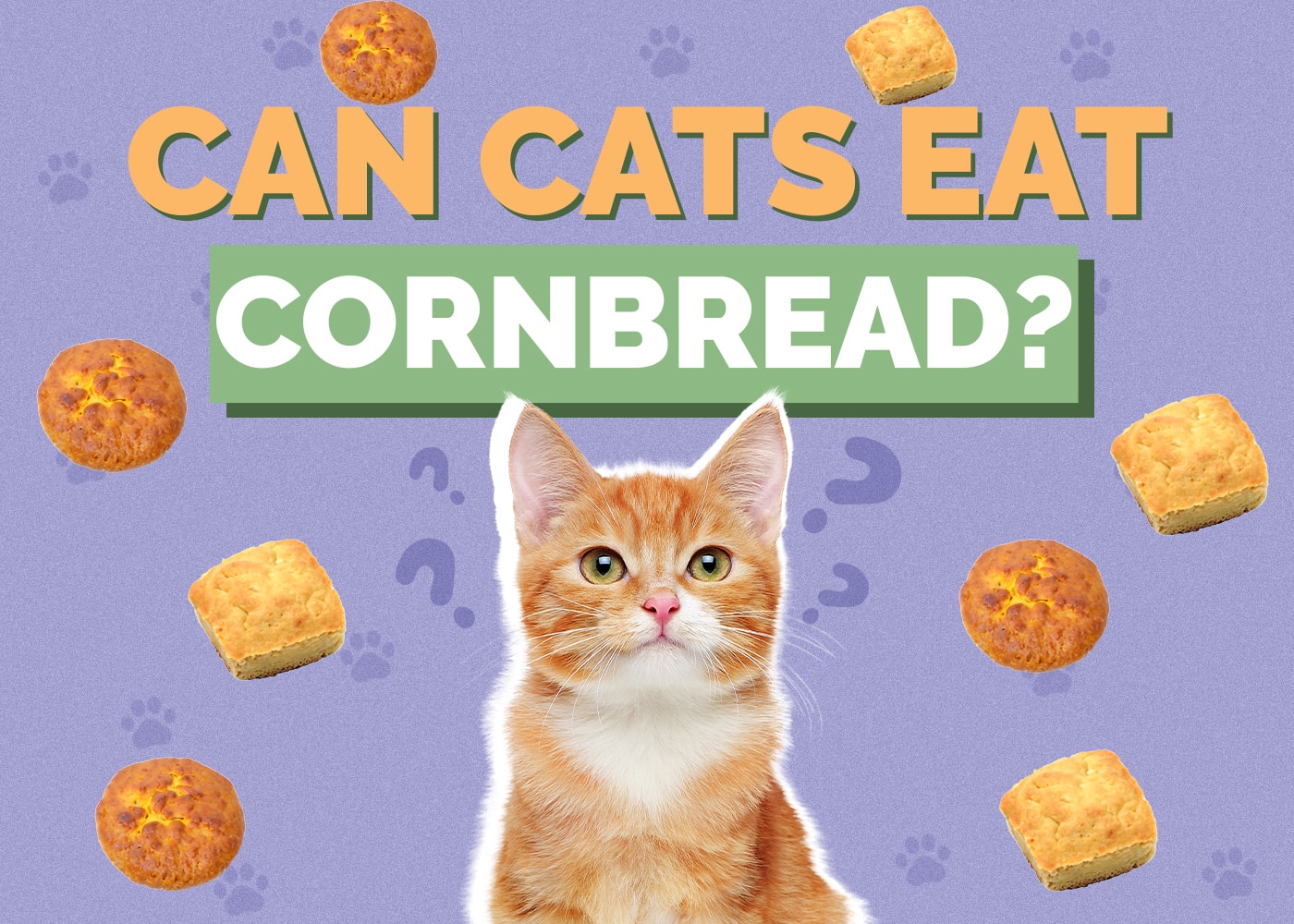
Cornbread is a delicious American tradition, enjoyed all year round by millions of families in the United States. You may have just pulled a loaf of fresh cornbread out of the oven and noticed your feline sniffing away excitedly and wondered if it’s safe to give them a taste. But can cats eat cornbread, and is it safe for them?
Technically, cats can eat cornbread as it’s non-toxic to them, but this certainly doesn’t mean they should. Cats don’t need a lot of carbohydrates in their diet, if any, and cornbread is packed with carbs and very little protein. This means cornbread has little to no nutritional value to cats, even though it’s not toxic. However, some of the recipes may be more problematic if they contain ingredients such as garlic or raisins, which are not commonly part of cornbread, but are considered toxic to cats and should never be offered in any amount.
In this article, we’ll dive a little deeper into cornbread and why it’s probably not a good idea to share any with your cat.
Cats Are Obligate Carnivores
In the wild, your cat’s ancestors fed almost exclusively on meat. Although cats can eat some plant foods safely in moderation, they have a biological necessity to consume meat and have very little need for carbohydrates. This is evidenced by your cat’s digestive tract, teeth, and biology, plus the fact that your cat has powerful hunting instincts, which we’re sure you’ve noticed by now!
Cats have four long, sharp canine teeth at the front of their mouths that are built to grasp and tear into meat, plus sharp carnassial teeth on the upper and lower jaws, used for grinding and biting off pieces of meat. Your cat’s digestive system is also designed to digest meat, with one of the shortest digestive tracts to body ratios of any animal, resulting in fewer intestinal bacteria to help ferment and break down plant material fast enough to gain any nutritional benefits.
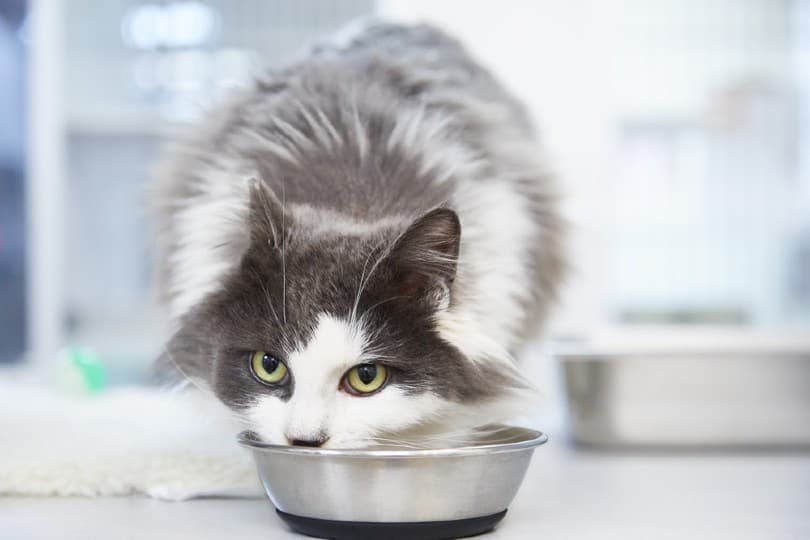
Is Cornbread Safe For Cats?
Corn is not toxic to cats, nor are the other common ingredients used in cornbread which include sugar, butter, and oil, but none of these ingredients are good for cats either. Since cats are obligate carnivores, none of the ingredients in cornbread offer any nutritional value to cats. However, some recipes may include harmful or even toxic ingredients.
- Moderate amounts of corn occasionally are not necessarily bad for cats, if they are prepared adequately and can be a source of energy, but it doesn’t provide much nutritional value when being a part of cornbread and can cause digestive issues in high amounts.
- Cats cannot taste sweetness, but it certainly doesn’t mean that they should eat sugar anyway. Cats don’t have a dietary requirement when it comes to sugar and carbs, and while it’s not toxic, it may still cause digestive issues, and if fed in excess, over a longer time, it may lead to obesity.
- While baking powder is only harmful to cats in larger amounts, it’s still best left off the menu as it can result in diarrhea and vomiting. Individual cats react to baking soda differently, so it’s best not to take any chances.
- Most cats are lactose intolerant, so butter and buttermilk can easily cause stomach issues, vomiting, and diarrhea.
- Rarely, some cornbread recipes may include garlic, onions, or even raisins that are toxic to cats. If your cat has ingested cornbread with one of these ingredients, consult your veterinarian.
That said, if your cat has a small piece of plain cornbread without any toxic ingredients every now and then—provided they even enjoy it—it shouldn’t do them any real harm, but it’s certainly not something we’d recommend giving them regularly.
What About Corn?
If you feed your cat on a regular commercial diet, chances are high that your cat is eating corn already. Most commercial dry and even wet cat foods contain corn or corn derivatives in varying amounts. Corn that is a part of commercial cat food is adequately prepared and is generally considered a safe and even healthy ingredient, according to Tufts University’s Clinical Nutrition Service. Corn contains essential fatty acids, minerals, vitamins and insoluble fiber, while being a good source of energy from both starch and fat.
While it’s true that cats can eat small amounts of corn occasionally with no problems, as part of cornbread, it actually offers them very little to no nutritional value and is best left out of their diet. Cats need a diet high in protein derived from animals, in order to be healthy and thrive.
Final Thoughts
Cornbread is not toxic to cats, and so if your feline eats a small piece here and there you don’t have any reason to worry. That said, there are no ingredients in cornbread that offer any nutritional value to cats since they are obligate carnivores, so it’s best left off the menu.
Related Reads:
Featured Image Credit: Marie Sonmez Photography, Shutterstock



